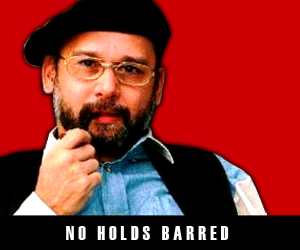The Ulama and the Sharia
The Ulama tell us that the Sharia is mandatory and to oppose it tantamount to defying God Himself. Is this true? Not all renowned Ulama agree with this notion. But the Ulama have the final say over the interpretation of Islam and what they say goes. And Malays are not learned enough or brave enough to challenge these notions.
NO HOLDS BARRED
Raja Petra Kamarudin
Harun al-Rashid was the fifth Abbasid Caliph who ruled from 786 to 809. This period is said to be the beginning of the Golden Age of Islam. It was during this period, too, that the Ulama (religious scholars) were prosecuted and persecuted due to their difference of opinion with the Caliphs on how Islam should be interpreted. Many Ulama were tortured and then put to death, or sometimes tortured to death over a long period of time (unless they relented, repented and recanted and abandoned their ‘deviant’ ways).
It was not until the rule of the tenth Caliph, Al-Mutawakkil, who ruled from 847 to 861, that the Inquisition against the Ulama ended. This was when Islam more or less saw the separation of Church and State and power over Islam was handed over to the Ulama. However, it was not until the 25th Caliph, Al-Qadir, who ruled from 991 to 1031, that the Ulama were united under a single doctrine.
Because the Ulama were now ‘free’ and were no longer under the control of the State, they were able to reach the heights of unquestioned religious authority. And this made it also possible for them to institutionalise their legal and theological opinions into a school of thought and code of conduct called the Sharia.
Not everyone recognised the authority of the Ulama plus their opinions or interpretation of Islam, though. However, because of the power they held over the Umma (society), any dispute over what the Ulama decreed would be viewed as a crime of apostasy or heresy and would be punishable by death.
In 1877, Sayyid Ahmed Khan founded the Aligarh School that fought to free Muslims from the shackles of the Ulama and what he viewed as an outdated doctrine. He believed that the only way forward for Muslims, who by then were overtaken (and in fact colonised) by the West, was to modernise the Sharia.
“What I acknowledge to be the original religion of Islam is not the religion which the preachers have fashioned,” declared Sayyid.
Chiragh Ali, Sayyid’s protégé, said that the Sharia is a fiction created by the Ulama to control Muslims and cannot be considered as a civil code of law because it deviates from the Qur’an. He argued that it would be ridiculous to regard Islamic law, which is a product of the Ulama’s imagination, as something that cannot be challenged or changed.
Modernists like Maulana Maududi, the founder of Jama’at-i Islami, countered this belief and said that Islam makes it mandatory that the law of God must become the law that Muslims adopt. His belief eventually laid the foundation for the first modern Islamic State called Pakistan.
Another modernist, Jamal ad-Din al-Afghani, agreed with Sayyid in that the Ulama were the cause for the collapse of the Islamic Empire. He accused the Ulama of stifling independent thought and scientific progress, which resulted in the West leaving the Muslim countries far behind to remain in the middle ages.
Afghani even went so far as to label the Ulama the true enemies of Islam. Afghani influenced the thinking of a group that became known as the Young Ottomans, a group that fought to combine Western democratic ideals with traditional Islamic principles.
One of Afghani’s followers, Muhammad Abdu, believed that the way forward for Muslims is to liberate Islam from the iron grip of the Ulama and their narrow interpretation of the Sharia. This eventually saw the overthrow of the Ottoman Empire by the Young Ottomans (also known as the Young Turks) and the transformation of Turkey into a modern Secular Republic.
Today, Malaysia is facing so many problems regarding issues related to Islam. Even the Ulama are at odds with one another as to what ‘proper’ Islam is. Is Islam the religion that is the cause of this or is it those Ulama who have interpreted Islam according to their understanding and beliefs that are the problem?
The Ulama tell us that the Sharia is mandatory and to oppose it tantamount to defying God Himself. Is this true? Not all renowned Ulama agree with this notion. But the Ulama have the final say over the interpretation of Islam and what they say goes. And Malays are not learned enough or brave enough to challenge these notions.
This is the real crux to the whole matter. And until this is resolved expect even more conflict regarding Islam as religion continues to be used as a means of control over the hearts and minds of the Malays.


